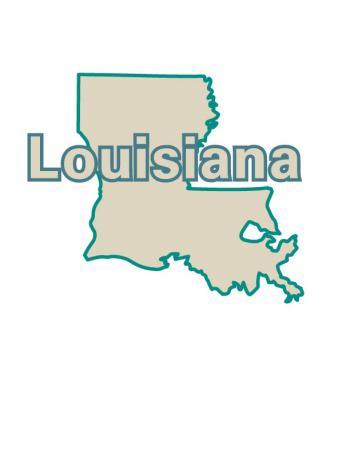
Analysis: Devising highway financing plan proves difficult
BATON ROUGE (AP) — Not surprisingly, coming up with hundreds of millions of dollars without raising taxes is a difficult task. Try explaining that to angry drivers across Louisiana clamoring for the state to spend more money repairing and improving the state’s highways.
The governor and lawmakers face a daunting backlog of road and bridge work in the state, estimated at $12 billion. And that’s not counting the wish list of projects that people want added to the pile.
But Louisiana, like many states, is struggling with a gasoline tax that hasn’t kept pace with construction inflation. On top of that, Gov. Bobby Jindal and lawmakers have steered millions in transportation dollars to instead pay for state police operations as they grapple with repeated budget shortfalls.
If that isn’t enough, a dedicated list of major highway and bridge projects that voters approved in 1989 have ballooned in cost to $5.2 billion, nearly four times original estimates, siphoning off a significant slice of the existing state gas tax revenue each year.
When the state’s economy was flush in 2008, lawmakers agreed to dedicate vehicle sales tax money to road and bridge work. But the national recession and Louisiana’s own financial problems have ensured the state hasn’t hit the financial trigger to shift the estimated $400 million to transportation needs.
Meanwhile, continuing budget woes have lawmakers who want to pour new dollars into roads fighting to maintain what the state currently spends and competing against education and health care to simply avoid cuts.
That adds up to stagnant transportation funding, mounting traffic complaints and a state that seems stuck in neutral, unable to make a sizable dent in the multibillion-dollar backlog.
Frustrated lawmakers created a task force to come up with financing ideas, hoping someone could find a creative idea that hits a funding goldmine. The panel included lawmakers, state transportation officials and construction and engineering representatives.
But the task force, which approved a draft report last week, hit the obvious roadblock: How do you generate new money for roads in an anti-tax environment amid budget problems that some lawmakers say have reached crisis-level proportions?
The eight-member panel took the approach of throw everything at the wall and see what sticks. Rather than offer specific recommendations, the Transportation Funding Task Force is forwarding all the ideas it heard.
The panel is letting legislators sift through concepts to see which generate the most interest, hoping that something could get enough support from the House and Senate to pass.
Ideas include: replacing the state gasoline tax with a sales tax on a broader array of fuel sales; dedicating more money in the state construction budget to road work; and steering dollars to highways that otherwise pour into Louisiana’s “rainy day” fund.
Other proposals involve requiring owners of vehicles that run on compressed natural gas to pay a fuel tax equivalent to the state’s gasoline tax and charging consumers a new, 1-cent state sales tax, with the dollars earmarked for regional transportation projects.
Partnering with the private sector on infrastructure projects was suggested, which could involve a private company building a road project in exchange for charging user fees or tolls.
Members of the transportation task force said they hope lawmakers will consider some of the ideas in the two-month regular legislative session that begins in April. However, many of the items seem instead like a long-term wish list.
The tax proposals are unlikely to go anywhere with Jindal, who opposes any tax changes that generate new dollars, and with lawmakers who will be up for re-election this fall. Jindal is term-limited and can’t run again.
In any event, next year’s $1.4 billion budget shortfall could take the air out of discussions about finding ways to increase spending on road work while lawmakers are struggling to continue ongoing services.
The four announced candidates in the governor’s race have started talking about their own ideas. If the state’s going to attack the $12 billion backlog, it appears much of the real work may fall to a new governor and the lawmakers who take office in 2016.
- Log in to post comments
